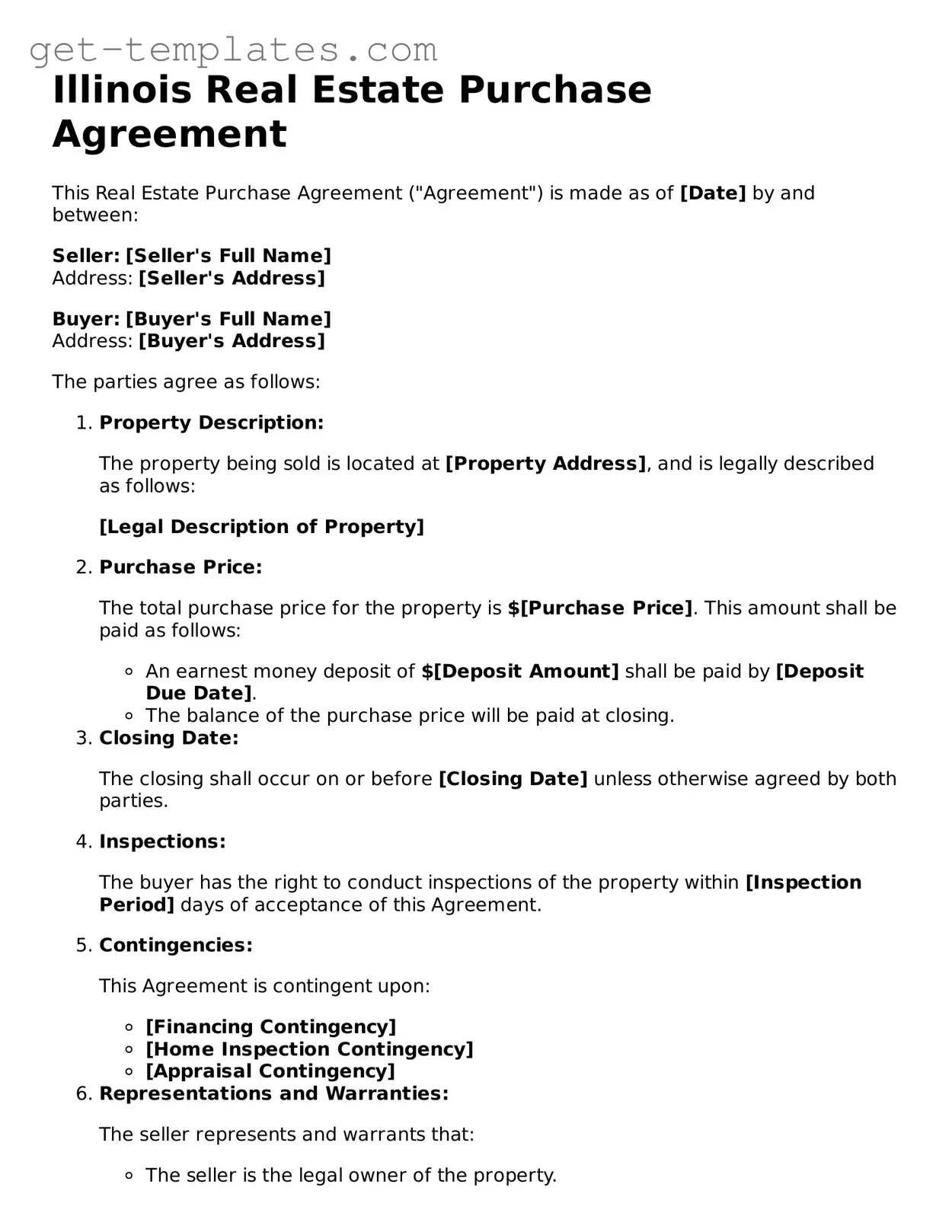Attorney-Approved Real Estate Purchase Agreement Document for Illinois
The Illinois Real Estate Purchase Agreement is a legal document that outlines the terms and conditions for buying or selling real estate in Illinois. This form serves as a binding contract between the buyer and seller, detailing essential aspects such as price, financing, and contingencies. Understanding this agreement is crucial for both parties to ensure a smooth transaction and protect their interests.
Get Document Online

Attorney-Approved Real Estate Purchase Agreement Document for Illinois
Get Document Online
You’re halfway through — finish the form
Finish Real Estate Purchase Agreement online — edit, save, download made easy.
Get Document Online
or
⇓ PDF Form
